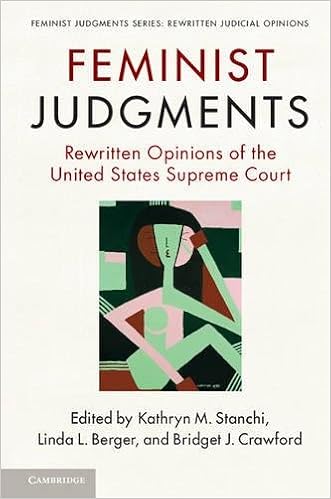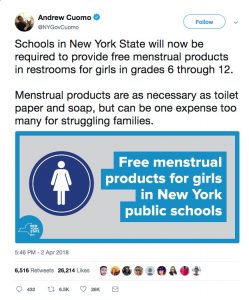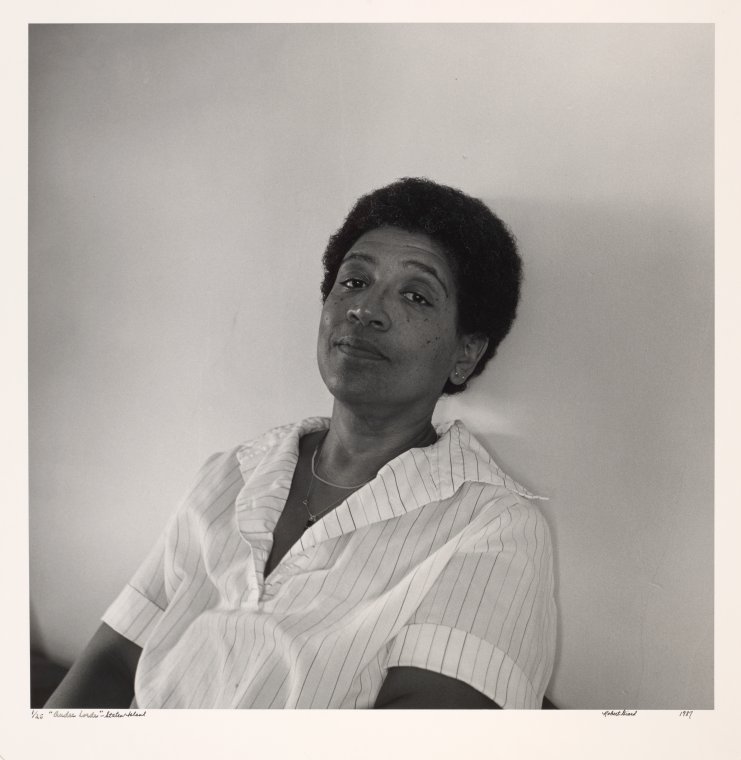Dr. Christine Blasey Ford’s accusation that Judge Brett Kavanaugh sexually assaulted her when they were both in high school has turned Kavanaugh’s judicial confirmation into an extremely polarizing political issue.
In the midst of the #metoo movement, Dr. Ford’s accusation (and the two others that have followed) has brought the issue of prevalence of sexual assaults back into the limelight and political officials’ responses to the accusations have varied widely, leading to a new trending Twitter hashtag: #WhyIDidntReport. A hearing is set for this Thursday – both Ford and Kavanaugh are scheduled to testify – and it remains uncertain what the vote will be.
Because the midterms are approaching, several Senators’ future political careers are at stake and the media has been pressuring them to make a statement on Kavanaugh’s nomination and his now-multiple accusations of sexual assault. It is the Senate that will determine whether Kavanaugh is confirmed. What follows is a summary of every Senator’s response to the sexual assault accusations against Kavanaugh, gathered through media interviews or social media postings. They have been grouped into six categories: (1) believes Ford and calls to investigate, (2) unsure but calls to investigate, (3) Ford is mistaken, (4) Ford is lying, (5) doesn’t care if it’s true, and (6) no response. In addition, the Senators who are up for re-election are noted with an asterisk.
Murkowski, Lisa – (R – AK): Doesn’t know and investigate.
Sullivan, Dan – (R – AK): Doesn’t know and investigate.
Jones, Doug – (D – AL): Doesn’t know and investigate.
Shelby, Richard C. – (R – AL): Doesn’t know and investigate.
Boozman, John – (R – AR): No response.
Cotton, Tom – (R – AR): Doesn’t care.
*Flake, Jeff – (R – AZ): Doesn’t know and investigate.
Kyl, Jon – (R – AZ): Doesn’t know and investigate.
*Feinstein, Dianne – (D – CA): Believe and investigate.
Harris, Kamala D. – (D – CA): Believe and investigate.
Bennet, Michael F. – (D – CO): Believe and investigate.
Gardner, Cory – (R – CO): Doesn’t know and investigate
Blumenthal, Richard – (D – CT): Believe and investigate.
*Murphy, Christopher – (D – CT): Doesn’t know and investigate.
*Carper, Thomas R. – (D – DE): Doesn’t know and investigate.
Coons, Christopher A. – (D – DE): Believe and investigate.
*Nelson, Bill – (D – FL): Doesn’t know and investigate.
Rubio, Marco – (R – FL): Doesn’t care.
Isakson, Johnny – (R – GA): No response.
Perdue, David – (R – GA): Doesn’t know and investigate.
*Hirono, Mazie K. – (D – HI): Believe and investigate.
Schatz, Brian – (D – HI): No response.
Ernst, Joni – (R – IA): She’s lying.
Grassley, Chuck – (R – IA): Doesn’t know and investigate.
Crapo, Mike – (R – ID): No response.
Risch, James E. – (R – ID): No response.
Duckworth, Tammy – (D – IL): Believe and investigate.
Durbin, Richard J. – (D – IL): Believe and investigate.
*Donnelly, Joe – (D – IN): Doesn’t know and investigate.
Young, Todd – (R – IN): No response.
Moran, Jerry – (R – KS): Doesn’t know and investigate.
Roberts, Pat – (R – KS): Doesn’t know and investigate.
McConnell, Mitch – (R – KY): Doesn’t care.
Paul, Rand – (R – KY): Doesn’t care.
Cassidy, Bill – (R – LA): She’s lying.
Kennedy, John – (R – LA): Doesn’t know and investigate.
Markey, Edward J. – (D – MA): Believe and investigate.
*Warren, Elizabeth – (D – MA): Believe and investigate.
*Cardin, Benjamin L. – (D – MD): Believe and investigate.
Van Hollen, Chris – (D – MD): Believe and investigate.
Collins, Susan M. – (R – ME): Doesn’t know and investigate.
*King, Angus S., Jr. – (I – ME): No response.
Peters, Gary C. – (D – MI): Believe and investigate.
*Stabenow, Debbie – (D – MI): Believe and investigate.
*Klobuchar, Amy – (D – MN): Believe and investigate.
Smith, Tina – (D – MN): Believe and investigate.
Blunt, Roy – (R – MO): Doesn’t know and investigate.
*McCaskill, Claire – (D – MO): Doesn’t know and investigate.
Hyde-Smith, Cindy – (R – MS): She’s lying.
*Wicker, Roger F. – (R – MS): She’s lying.
Daines, Steve – (R – MT): She’s lying.
*Tester, Jon – (D – MT): No response.
Burr, Richard – (R – NC): No response.
Tillis, Thom – (R – NC): Doesn’t know and investigate.
*Heitkamp, Heidi – (D – ND): Doesn’t know and investigate.
Hoeven, John – (R – ND): No response.
*Fischer, Deb – (R – NE): No response.
Sasse, Ben – (R – NE): No response.
Hassan, Margaret Wood – (D – NH): Believe and investigate.
Shaheen, Jeanne – (D – NH): Believe and investigate.
Booker, Cory A. – (D – NJ): Believe and investigate.
*Menendez, Robert – (D – NJ): Believe and investigate.
*Heinrich, Martin – (D – NM): Believe and investigate.
Udall, Tom – (D – NM): Believe and investigate.
Cortez Masto, Catherine – (D – NV): Believe and investigate.
*Heller, Dean – (R – NV): Doesn’t care.
*Gillibrand, Kirsten E. – (D – NY): Believe and investigate.
Schumer, Charles E. – (D – NY): Believe and investigate.
*Brown, Sherrod – (D – OH): No response.
Portman, Rob – (R – OH): She’s lying.
Inhofe, James M. – (R – OK): No response.
Lankford, James – (R – OK): (Probably) doesn’t care.
Merkley, Jeff – (D – OR): Believe and investigate.
Wyden, Ron – (D – OR): Believe and investigate.
*Casey, Robert P., Jr. – (D – PA): Believe and investigate.
Toomey, Patrick J. – (R – PA): Don’t know and investigate.
Reed, Jack – (D – RI): Believe and investigate.
*Whitehouse, Sheldon – (D – RI): Believe and investigate.
Graham, Lindsey – (R – SC): Doesn’t care.
Scott, Tim – (R – SC): No response.
Rounds, Mike – (R – SD): No response.
Thune, John – (R – SD): She’s lying/confused.
Alexander, Lamar – (R – TN): She’s lying/confused.
*Corker, Bob – (R – TN): She’s lying.
Cornyn, John – (R – TX): She’s lying.
*Cruz, Ted – (R – TX): Doesn’t know and investigate.
*Hatch, Orrin G. – (R – UT): She’s lying.
Lee, Mike – (R – UT): No response.
*Kaine, Tim – (D – VA): Believe and investigate.
Warner, Mark R. – (D – VA): Believe and investigate.
Leahy, Patrick J. – (D – VT): Believe and investigate.
*Sanders, Bernard – (I – VT): Believe and investigate.
*Cantwell, Maria – (D – WA): Believe and investigate.
Murray, Patty – (D – WA): Believe and investigate.
*Baldwin, Tammy – (D – WI): Believe and investigate.
Johnson, Ron – (R – WI): Doesn’t know and investigate.
Capito, Shelley Moore – (R – WV): She’s lying.
*Manchin, Joe, III – (D – WV) Class I: Doesn’t know and investigate.
*Barrasso, John – (R – WY): Doesn’t know and investigate.
Enzi, Michael B. – (R – WY): Doesn’t know and investigate.
-JoAnn Sweeny and John Slack




 The Notre Dame Law Review Online has published a Symposium featuring several essays relating to Feminist Judgments: Rewritten Opinions of the United States Supreme Court (Kathryn M. Stanchi, Linda L. Berger & Bridget J. Crawford eds., Cambridge University Press, 2016). Here’s the table of contents for 94 Notre Dame L. Rev. Online (2018):
The Notre Dame Law Review Online has published a Symposium featuring several essays relating to Feminist Judgments: Rewritten Opinions of the United States Supreme Court (Kathryn M. Stanchi, Linda L. Berger & Bridget J. Crawford eds., Cambridge University Press, 2016). Here’s the table of contents for 94 Notre Dame L. Rev. Online (2018): Professor Margaret Thornton (Australia National University) will be guest-editing a special edition of the journal Laws, the international, peer-reviewed open-access journal published by MDPI (based on Basel, Switzerland).
Professor Margaret Thornton (Australia National University) will be guest-editing a special edition of the journal Laws, the international, peer-reviewed open-access journal published by MDPI (based on Basel, Switzerland). 

 I recently took a break from writing law review articles to publish my first children’s picture book, which celebrates working moms — including lawyer moms. The book is titled, My Mom Has Two Jobs.
I recently took a break from writing law review articles to publish my first children’s picture book, which celebrates working moms — including lawyer moms. The book is titled, My Mom Has Two Jobs.

 has published Gay Priori: A Queer Critical Legal Studies Approach to Law Reform (Duke University Press, 2018).
has published Gay Priori: A Queer Critical Legal Studies Approach to Law Reform (Duke University Press, 2018). 


